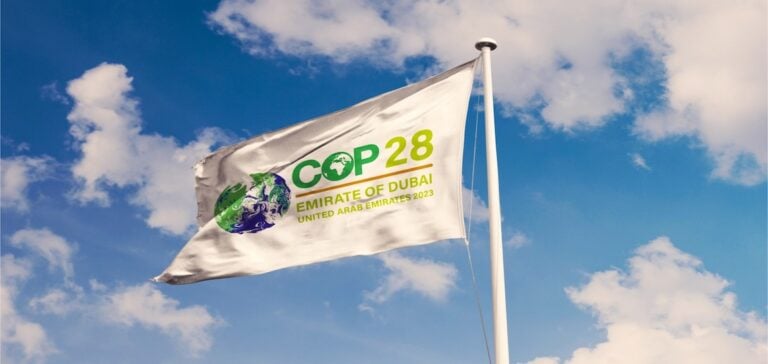Sultan Al Jaber, President-designate of COP28, travelled to Spain to meet European Union energy and environment ministers. The aim of these meetings was to stimulate momentum and foster cooperation for a successful and inclusive COP28.
Al Jaber Calls for Decisive European Action for Global Energy Transition
At these meetings, Al Jaber stressed the crucial importance of reducing global emissions by 43% by 2030. It highlighted the urgent need for a major course correction to tackle the climate emergency and meet the objectives of the Paris Agreement. Al Jaber called on stakeholders to support the first Global Renewable Energy Commitment, an initiative aimed at tripling global renewable energy capacity to 11,000 GW. He also urged the doubling of hydrogen production to 180 million tonnes, underlining the importance of this resource in the transition to a low-carbon economy.
Al Jaber stresses that the global energy transition cannot be achieved without the support of Europe and the EU. He called for concrete action to facilitate the expansion of renewable energies, including accelerating project and infrastructure approvals, extending power grid connections, increasing investment in key technologies such as energy storage, and improving energy efficiency. These measures are essential to accelerate the decarbonization of the energy and industrial sectors.
Al Jaber Calls for Major Reform to Finance Global Energy Transition
On the subject of climate financing, Al Jaber expressed optimism that donors would meet their $100 billion pledge this year. However, he stressed the need to operationalize the loss and damage fund to cope with the inevitable consequences of climate change. To finance the energy transition on a large scale, Al Jaber asserted the need to simplify access to climate financing and find new, scalable mechanisms to channel substantial private sector investment into developing countries. He called for major reform of international financial institutions (IFIs) and multilateral development banks (MDBs) to unlock concessional financing, reduce investors’ perceived risks and attract large-scale private financing.
Al Jaber stressed that the transition to a low-carbon, climate-resilient economy is a complex challenge that requires the collaboration and commitment of all players, including governments, businesses, civil society and citizens. He called for an inclusive approach, where nobody has all the answers and there is no single solution. By working together, he believes that the decisive transformation the world needs can be achieved.
COP28 under Al Jaber’s leadership: towards a historic and inclusive energy transition
Sultan Al Jaber reaffirmed the importance of COP28 as a platform for action to combat climate change. He called for a just energy transition that guarantees food security, health and sanitation for all, by making financing accessible to all, particularly in developing countries.
He stressed that COP28 must be a COP of action and a historic opportunity to achieve the goal of limiting global warming to 1.5 degrees Celsius. The meeting with EU energy and environment ministers in Spain was an important step in promoting concrete action on climate financing, the expansion of renewable energies and international cooperation in the fight against climate change.






















